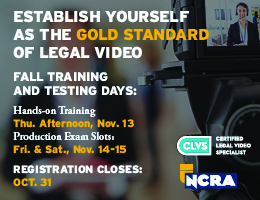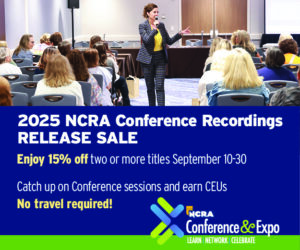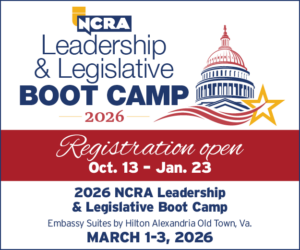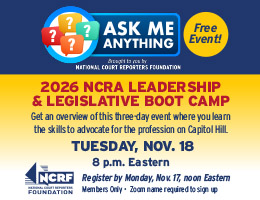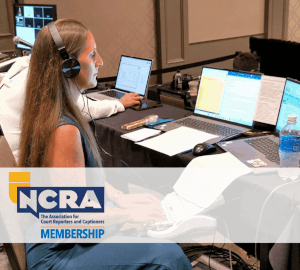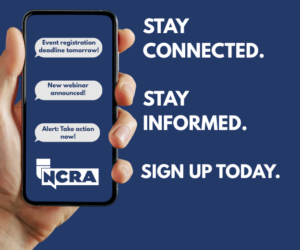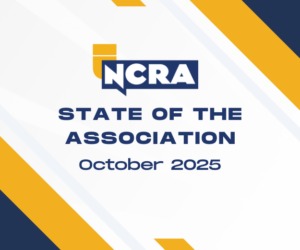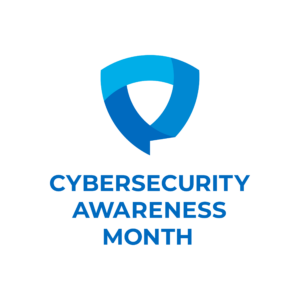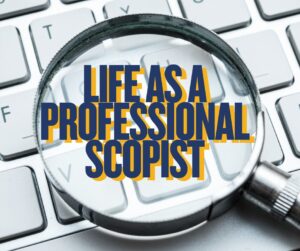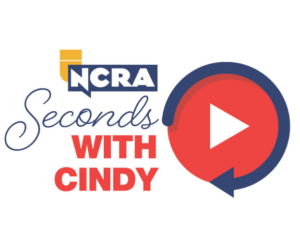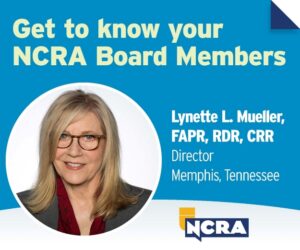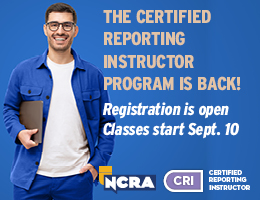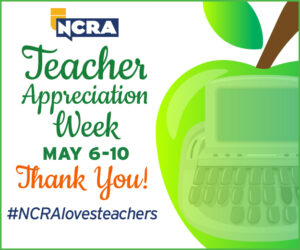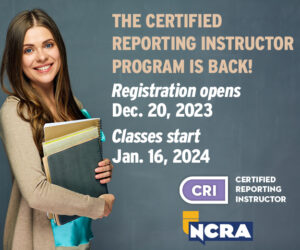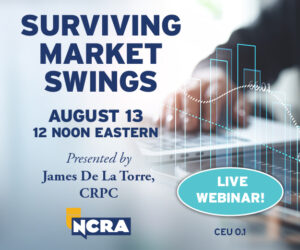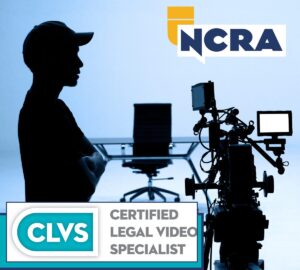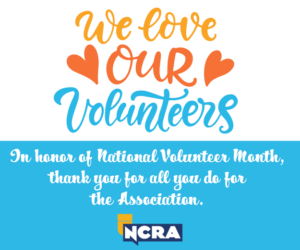Since hitting the scene in the mid-1990s the popularity of webinars to share information has defied all communications trends. Their use has more than rapidly grown, thanks to the platform’s ability to allow presenters a cost-effective mode to reach large and specific groups of online viewers from a single location and offers participants the ability to interact with presenters.
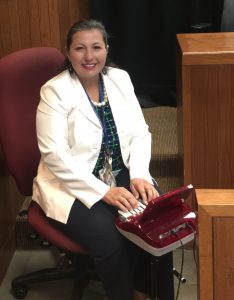
NCRA offers a variety of both live and recorded webinars that members can use to earn continuing education units. But it’s not just the participants who benefit from the value of webinars; the presenters do as well.
“I love webinars,” says Erminia Uviedo, RDR, CRR, a freelance court reporter from San Antonio, Texas, who was tapped by NCRA to present in a webinar about promoting and recruiting for the court reporting and captioning professions. “I think they are so informative and educational. Court reporters’ and captioners’ schedules are so hectic that it is sometimes hard to get away to a convention. Webinars make a very convenient and flexible way to educate and earn continuing education credits,” Uviedo said.

Steve Lubetkin, CLVS, managing partner of Lubetkin Media Companies in Cherry Hill, N.J., said he presented his first webinar for NCRA after a conversation with staff when he finished his CLVS practical test. The conversation, he said, was about how highly he thought of the program. Since then, he has produced and hosted three webinars for NCRA.
“I enjoy being able to share some of the practical experience I’ve gained producing video and managing my business. I’m proud of some of the tricks I’ve learned to streamline the work, and it’s rewarding to have peers say they appreciate the ideas as well,” Lubetkin said.
Uviedo agreed. “Lending your expertise to other reporters is one of the greatest givebacks you can contribute to the profession. Many of us are self-employed and do not have an employer to guide and/or train us. Training and guidance via webinar is an excellent way to educate our professionals,” said the 23-year veteran of court reporting.
According to Lubetkin, depending on the topic, preparing and creating a webinar can take some work on the presenter’s part. “For my webinar on the deposition audio chain, I think I spent two or three hours shooting the b-roll I used to illustrate part of the one-hour program. For the others, I spent several hours each on screen shots and display materials,” he noted.
Uviedo encourages others to volunteer to host webinars for NCRA to help increase educational opportunities. “I would say that your webinar is imperative for the busy working reporters who are unable to attend conventions and also reporters who are looking for guidance on information throughout the year. You can just go to NCRA’s webinar website and look for the topic you need training on, and voila! It’s a win-win for both the reporter and NCRA,” she said.
“Webinars are great when people can dedicate the specific time period for the live learning, and engage in interaction with the instructor and participants, but they are also valuable as on-demand recorded programs that people can go back to over and over to review concepts and techniques,” added Lubetkin, who has been a legal videographer since 2014 and earned his CLVS in 2016.
NCRA is always looking for professionals to share their expertise with our membership. Presenting a webinar is a great way to build your résumé, gain a platform for your ideas, and contribute your knowledge to the NCRA Continuing Education library. Presenters may advertise their business at the end of their presentations and will be compensated. For more information, contact egoff@ncra.org.
